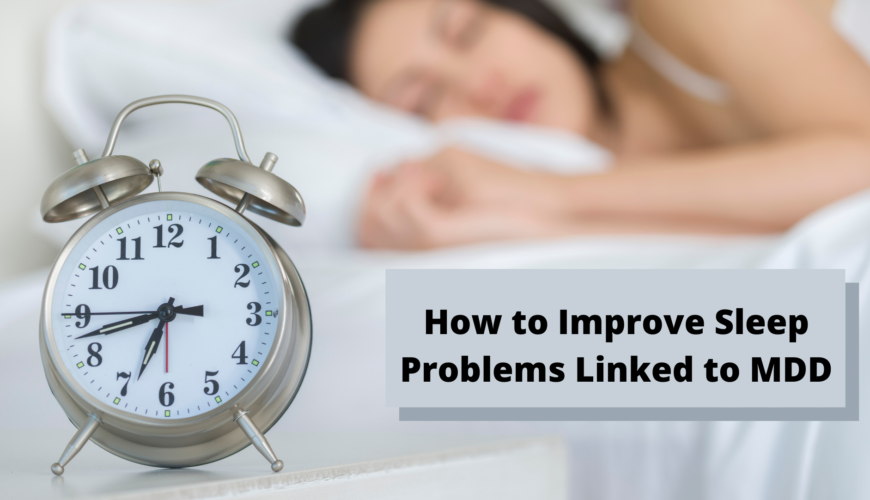Did you know about 3 out of 4 adults who have depression also have insomnia? MDD or major depressive disorder, can commonly be linked to sleep problems in individuals. MDD is a mental disorder characterized by a persistently depressed mood and long-term loss of pleasure or interest in life, often with other symptoms such as disturbed sleep, feelings of guilt or inadequacy, and suicidal thoughts. Sleep problems can either be a result of depression or be one of the causes leading to depression.
Three common sleep problems linked to depression include insomnia, hypersomnia, and obstructive sleep apnea.
- Insomnia is a sleep disorder in which you have trouble falling and/or staying asleep.
- Hypersomnia is a condition in which you feel extreme daytime sleepiness despite getting sleep that should be adequate (or more than adequate).
- Obstructive sleep apnea is when something blocks part or all of your upper airway while you sleep.
Can we improve sleep problems linked to depression? It is important to find the right treatment plan for everyone. Treatment and medication may vary depending on the severity of symptoms. Aside from treatment options provided by your doctor, there are several lifestyle tips to improve your sleep habits and depression. Some tips include:
- Meditation is used to reduce stress and it can be practiced in many ways. A few ways to meditate daily are to breathe deeply, listen to meditation sounds, read and reflect, or focus on gratitude.
- Get regular exercise no later than a few hours before bedtime to tire you out and relieve stress or anxiety. Incorporate stretching and conditioning exercises into your daily routine.
- Avoid bright screens such as laptops, televisions, phones, and tablets about an hour prior to bedtime. Screentime has been known to delay sleepiness and suppress melatonin levels.
- Caffeine, alcohol, or nicotine in the evening can interrupt sleep, so try to avoid them before bed. Be sure to check the labels of items that may contain those ingredients as well.
- Warm showers before bed may help you fall asleep quicker. A warm shower or bath about 90 minutes before bed will change your body’s core temperature and may help your body get a better night’s sleep.
- Sleep aids, which may help sleep disturbances are earplugs, a sleep mask, blackout shades, and a white noise machine.
If you are taking an ineffective antidepressant medication and are having trouble sleeping, consider enrollment for a clinical research study with Preferred Research Partners. Preferred Research Partners is seeking adults and elderly participants diagnosed with major depressive disorder (MDD). To learn more and see if you qualify, click here.

